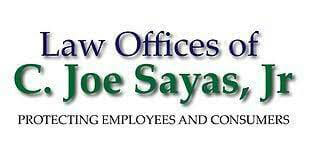
Q: I was badly injured in a recent car accident. I had to undergo multiple surgeries. I missed several weeks of work and will need more time off for treatments. I am afraid to tell my boss that I need more time off because I might be fired. What should I do?
A: You need to notify the employer immediately about the need for more treatments related to your injuries or medical condition. In this way, you are protected from any adverse action that may be taken against you at work. You are not required to disclose the nature of your medical condition or disability (i.e., your diagnosis). You are required only to provide reasonable medical documentation which describes your physical or mental limitations, which may prevent you from doing your work. For example, the medical documentation may simply state that you are restricted from lifting more than 25 lbs.
Once notified of your medical condition or the need for more treatments related to a medical condition, the employer is obligated by law to engage you in a timely, good faith interactive process to determine if reasonable accommodation can be made.
There are several instances where an employee’s personal injuries (whether these injuries happened at work or outside work) lead to violations of the employee’s rights. Consider the following situations:
- The employer denies the employee’s request to take time off to undergo treatments. Employers with 5 or more employees are prohibited from denying the right to use medical leave, or for disciplining, discharging, demoting, suspending, or discriminating against an employee for using such leave for themselves (or to attend to an ill family member).
- The employer denies the employee’s request for reasonable accommodation. The employer must engage in a timely, good faith interactive process to determine if reasonable accommodation can be made for a disabled employee to accommodate restrictions. Sometimes, granting an additional short-term extension of an approved leave may constitute reasonable accommodation.
- After filing a request for family or medical leave (or after filing a worker’s compensation claim), the employee experiences an adverse employment action, such as demotion, decrease in pay, decrease of work hours, loss of benefits, assignment to unfavorable tasks, suspension, or termination. Such actions contradict California law.
- The employer retaliates against the employee for filing a worker compensation claim or some other claim by withholding the payment of all the employee’s wages due on the last day of employment. The employer must immediately pay all compensation due, and ensure that the employee receives the payment.
- After the employee requests intermittent leave or comes back from leave, the employee experiences an adverse employment action such as being assigned to unfavorable assignments, given difficult-to-achieve deadlines, being written up, demoted, stripped of supervisory responsibilities, laid-off, or fired.
- The employee was fired for “excessive absences” even though the employee provided doctor’s notes for these absences.
If an employee experiences any of the above, they would be smart to consult with an experienced employment attorney. Employees who are let go based on a disability or medical condition, or for asserting their legal rights related to their disability or medical condition, may sue for wrongful termination. If they are found to have been discriminated or retaliated against, they are entitled to the following: reinstatement, back pay, loss of earnings, damages for emotional distress, attorneys’ fees and costs, and punitive damages in certain instances.
The Law Offices of C. Joe Sayas, Jr. welcomes inquiries about this topic. All inquiries are confidential and at no-cost. You can contact the office at (818) 291-0088 or visit www.joesayaslaw.com. [For more than 25 years, C. Joe Sayas, Jr., Esq. successfully recovered wages and other monetary damages for thousands of employees and consumers. He was named Top Labor & Employment Attorney in California by the Daily Journal, consistently selected as Super Lawyer by the Los Angeles Magazine, and is a past Presidential Awardee for Outstanding Filipino Overseas.]

